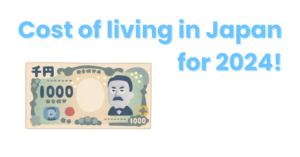According to estimates, Japan will be the 11th most visited country in 2024. It’s no surprise because Japan has always been one of the most fascinating destinations in the world. It is known for its unique culture and social customs. In Japan, you can explore one of the most advanced cities, Tokyo, or stay in a quaint ryokan in Kyoto.
Thanks to the favorable exchange rate, this year could be the perfect time to make your dream of traveling to Japan come true. But what do you need to travel to Japan? What should you be aware of when you travel to Japan? And where are the best places to explore in Japan? Keep reading—this article will answer all these questions and more!
1. Travel to Japan Checklist
Click here to download the complete Excel list.
1-1. Essential
| No. | Item | Notes |
|---|---|---|
| 1 | Passport | Please check if it’s going to expire soon. |
| 2 | Japanese Visa | Please check if your citizenship qualifies for visa-free entry. If not, you may need to apply for a Japanese visa. For more details, please click here. |
| 3 | Airplane Ticket | Please don’t forget to arrange travel insurance. |
| 4 | Clothes | Please check the weather in the cities you will be visiting. For information on Japan's weather, please click here. *Japan is a country prone to natural disasters, so it's important to stay informed about earthquake and tsunami warnings. |
| 5 | Mobilephone | Please keep the contact number of your country’s embassy in your contact book for any emergencies: U.S.A. 03-3224-5000 U.K. 03-5211-1100 Canada 03-5412-6200 Australia 03-5232-4111 Please check your country's embassy in Japan here. |
| 6 | Sim Card or Portable Wifi | |
| 7 | Back Bag | Please check if it meets your airline’s requirements. |
| 8 | Power Bank | This is quite essential for a long trip. Please make sure it meets your airline’s requirements. |
| 9 | Credit Card | Visa, MasterCard, and JCB can all be used in Japan! |
| 10 | Cash (RMB) | You can exchange some currency at airports in both your country and Japan. *According to Japanese customs regulations, each foreigner is allowed to carry a maximum of 1 million JPY without declaring it to customs. |
| 11 | Hotels | Booking your hotels online and printing the information page in advance is highly recommended, as Japanese customs may ask where you will be staying during your journey. |
| 12 | Emergency Medicine and First Aid | Common medicines, such as aspirin, are generally acceptable. However, please check if the medications you are carrying are prohibited in Japan. For more details, please click here. |
| 13 | Suitable Shoes | This depends on the type of trips you will be taking. |
| 14 | Google Map, Amap or any other electronic map services. | For Japan, Google Maps is highly recommended! |
| 15 | Translator Apps or Devices | Or at least print the phases below in case 1. 英語でも大丈夫ですか。(Do you speak English?) 2. 道に迷いました。(I’m lost.) 3. 食べ物が欲しいです。(I need some food.) 4. お水が欲しいです。(I need some water.) 5. 具合が悪いです。(I need medical assistance.) 6. 警察を呼んでいただけますか。(Please call the police for me.) 7. 救急車を呼んでいただけますか。(Please call an ambulance for me.) |
1-2. Additional
| No. | Item | Details |
|---|---|---|
| 1 | Driving Licence | Some countries’ driving permits are recognized in Japan. If you plan to go on a self-driving trip in Japan, please check the policy of your country. |
| 2 | Gifts | If you are visiting someone in Japan. |
| 3 | Wet Wipes | To stay clean in inconvenient situations. |
| 4 | Travel Pillow and Eye Mask | To relax comfortably during your journey. |
| 5 | Sunscreen and Hat | Ensure that your sunscreen and any other liquids are packed in your checked luggage, as they are not permitted in your carry-on. |
| 6 | Guidebook | Nowadays, many tourists get information online, but it can still be helpful to carry a guidebook with you. |
| 7 | Umbrella or Packable Rain Jacket | In case it starts to rain while you are traveling. |
| 8 | Laptop | If you need it for entertainment or work during your trip. |
| 9 | Emergency Food (Energy Bars, Dried Fruits, etc) | Although shopping is convenient in Japan, it’s still a good idea to have some emergency food with you. |
| 10 | Travel Grooming Kit | Hotels of course provide grooming supplies, but it’s better to bring your own if you have specific preferences. |
| 11 | Personal Care | Include items such as sanitary pads, shaving cream, and deodorant. |
| 12 | Laundry Bag | To keep dirty clothes separate from clean ones. |
| 13 | Books | Reading books on the way can be really relaxing. |
| 14 | Noise-canceling Earplugs | To create a quiet environment for yourself anywhere. |
| 15 | Water bottle | You can fill your water bottle with drinkable tap water while waiting for your plane, avoiding the need to buy expensive bottled water. |
2. Places to Visit in Japan
What are the best places to visit in Japan? Well, it’s tough to give a definitive answer since everyone has different preferences. If you’re looking for personalized recommendations, feel free to leave a comment! In this section, I’ll share some popular destinations. Let’s dive in!
2-1. Modern Cities
Tokyo: With a population of 14 million, Tokyo is the political, economic, and cultural hub of Japan, ranking as the 4th most prominent city in the world.
Osaka: Japan’s second-largest city, known for its vibrant culture and business.
Yokohama: Home to the largest port in Asia.
Nagoya: Famous for being the headquarters of Toyota.

2-2. Amazing Mountains
Mount Fuji: The highest peak in Japan and a stunning volcano, widely recognized as a national symbol.
Mount Kitadake: The second-highest peak in Japan, known for its rich variety of plant life.
Mount Hakusan: One of Japan’s three holy mountains, popular for skiing.
Mount Tate: Another of Japan’s three holy mountains, famous for its rare glacial formations.

2-3. Great Beaches
Okinawa: Most famous remote island of Japan. Tropical style. Diving.
Atami: Coastal scenic with a stunning city view. Beautiful sunset.
Kujukuri Beach: 66 km long beach. Best place to surf!
Shirahama Beach: White sand and crystal-clear sea.

2-4. Wonderful Hot Springs
Hakone Onsen: One of the most famous hot springs in the world. Enjoy the hot spring while taking in the views of Mount Fuji!
Kusatsu Onsen: Known for its acidity, which has therapeutic effects.
Beppu Onsen: Rich in a diverse range of onsen types.
Noboribetsu Onsen: The best onsen in Hokkaido, offering a great view of the Hell Valley.

2-5. Japanese History and Culture
Kyoto: An essential visit, as it was the ancient capital of Japan!
Nara: Also an ancient capital of Japan, famous for its cute deer.
Kamakura: Renowned for the Great Buddha of Kamakura, and it is also one of the birthplaces of Japanese samurai culture.
Fukuoka: Known for Hakata ramen and the historically significant site of Hakata Castle.

2-6. Shopping Heavens
Ginza: in Tokyo, home to many luxury brands and boutiques.
Shibuya: in Tokyo, the crossroads of Asia.
Shinjuku: In Tokyo, features large shopping centers like Isetan and Takashimaya, as well as various electronics stores.
Namba: Situated in Osaka, offers a wide range of international brands and specialty stores.

3. What to pay attention to regarding Japanese manners
Japan is renowned for its highly organized society and strict etiquette. As a tourist, you might occasionally break some rules or unintentionally overlook certain customs. While this can be concerning, there are only a few key manners you need to be mindful of when you travel to Japan.
3-1. Be cautious around private areas
Japan, especially Tokyo, is known for its high-density construction. You might sometimes find yourself in what seems to be a public area, only to discover that it’s actually private. Be mindful of notices, which are often only in Japanese. The image below provides an example.

3-2. Avoid eating food on subways and in-town trains
While eating food on subways and in-town trains may be common in some places, it is prohibited in Japan. However, drinking water and other odorless beverages is allowed. The Shinkansen, also known as Japanese high-speed train, is an exception to this rule.
3-3. Stand on one side of the elevator
Japan is known for its fast-paced and efficient society. When using elevators, people generally stand on one side to leave the other side clear for those who wish to pass quickly. In East Japan, such as Tokyo, stand on the left side. In West Japan, like Osaka, stand on the right side. However, following the crowd is always a safe bet.
3-4. Be cautious with photography
In Japan, photography is often restricted in many public areas, including trains, gyms, museums, and libraries. Always check the regulations before taking photos. Capturing beautiful landscapes or iconic landmarks like Tokyo Tower is of course acceptable. However, it’s important to avoid photographing people’s faces up close.
3-5. Smoke only in designated areas
In Japan, smoking is only permitted in designated areas. It is illegal to smoke in non-designated public or private spaces. In addition, please be aware of your hotel’s smoking policy because smoking in guest rooms may be prohibited.
3-6. Do not transfer or use tax-free goods in Japan
When visiting Japan, you may enjoy the benefit of tax-free shopping. But regulations require that you take tax-free goods out of Japan with you. You are not allowed to consume, transfer to others, or resell these items within Japan, even after you leave the country.
4. Other common Q&A
4-1. Do you tip in Japan?
No, tipping is not customary in Japan. You do not need to tip in restaurants or other service establishments.
4-2. Do Japanese people speak English?
Like in China, English proficiency is not widespread among Japanese people. Therefore, it’s best not to expect smooth communication in English with most locals. However, an increasing number of foreigners working in Japan speak English, so receiving services in Japan should not be too challenging.
4-3. What are the differences between a Hotel, Ryokan, and Guest House?
It’s not easy to determine which type is more economical because it depends on various factors such as location, level of service, and facilities. All three types can offer both luxurious and budget-friendly options, but they differ in style.
Hotel: It is just what you’d find in any country, offering a wide range of services and amenities.
Ryokan: A traditional Japanese inn, usually featuring tatami mat rooms and wooden construction. Staying at a ryokan provides an authentic Japanese experience.
Guest House: Generally, you’ll need to handle some aspects yourself, such as getting the key. The level of service can vary significantly. For example, the owner of a guest house I once stayed at cooked dinner for us.
4-4. Can I go to nightclubs like hostess clubs?
The nightclub, including hostess clubs, is a significant part of Japan’s entertainment industry. Some nightclubs may not accept foreign guests, similar to certain private restaurants. Therefore, it’s important to check the requirements and policies of the venue before you go.

4-5. When can I see the firework festivals?
Firework festivals in Japan mostly take place in the summer, from June to August. The best time to visit Japan depends on what you want to see and where you plan to go.
4-6. Can Americans travel to Japan?
Of course, Americans can travel to Japan. Japan is open for tourism and generally does not impose travel restrictions on any country. You only need to be aware of any border measures in place to prevent the spread of diseases like coronavirus.
4-7. What is considered rude when visiting a restaurant in Japan?
Japan has strong sense of etiquette, but you don’t have to worry too much about manners when dining casually. If you are attending a business meal or dining with important people, it’s a good idea to familiarize yourself with proper table etiquette. Click here to learn more about Japanese dining manners.
4-8. How much does a trip to Japan cost?
Airfare can vary significantly depending on how early you book and the time of travel. Instead, I’d like to focus on the costs of accommodations, food, and domestic transportation.
As for accommodations, based on my personal experience, a standard room typically costs around 10,000 JPY (about 70 USD) per night. Food prices can vary depending on the type of restaurant you choose, and many office workers spend around 1,000 JPY per meal.
If you’re on a tight budget, my experience might be helpful. When I came to Japan in 2018 as an undergraduate student, I stayed for 10 days and spent around 1,200 USD. For more detailed information on prices in Japan, click here.
4-9. Can I find halal, Indian, or kosher restaurants in Japan?
In big cities like Tokyo and Osaka, you can find all of these options. So you don’t need to worry about your dietary needs. There are plenty of choices! However, if you’re traveling to smaller cities, availability may vary.
4-10. Is Japan a child- and disabled-friendly country?
Yes, Japan is generally very accommodating for both children and disabled individuals. In public areas, it’s common and easy to request assistance when needed.
4-11. May you have more questions?
Please leave a comment and I would love to answer it!
5. Conclusion
I hope this article has covered all the essential information for your trip to Japan! Since 2021, the exchange rate for Japan’s currency has been relatively low, which means things in Japan are more affordable than they used to be! Japan is a charming country to explore, and it will likely exceed your expectations.



